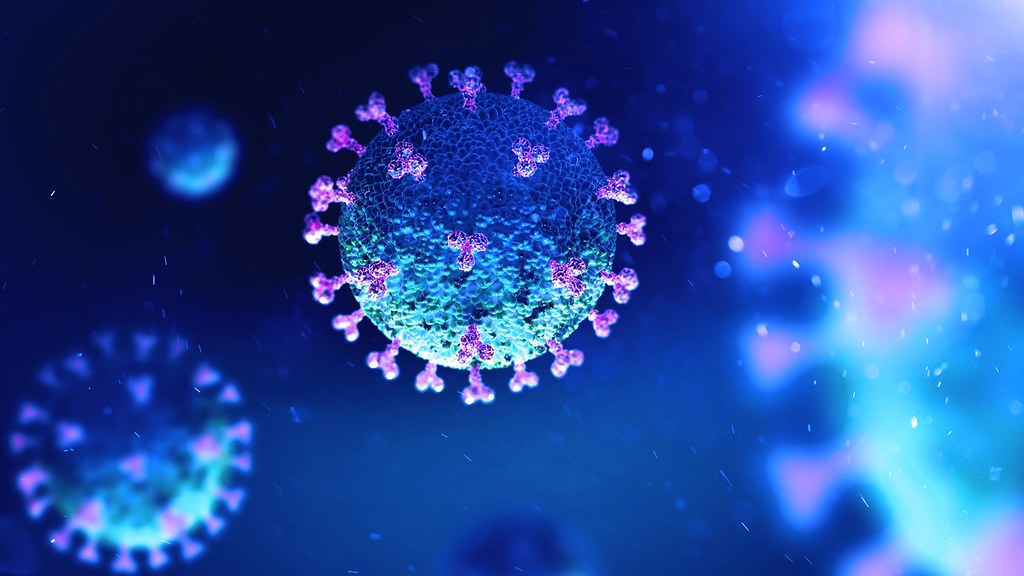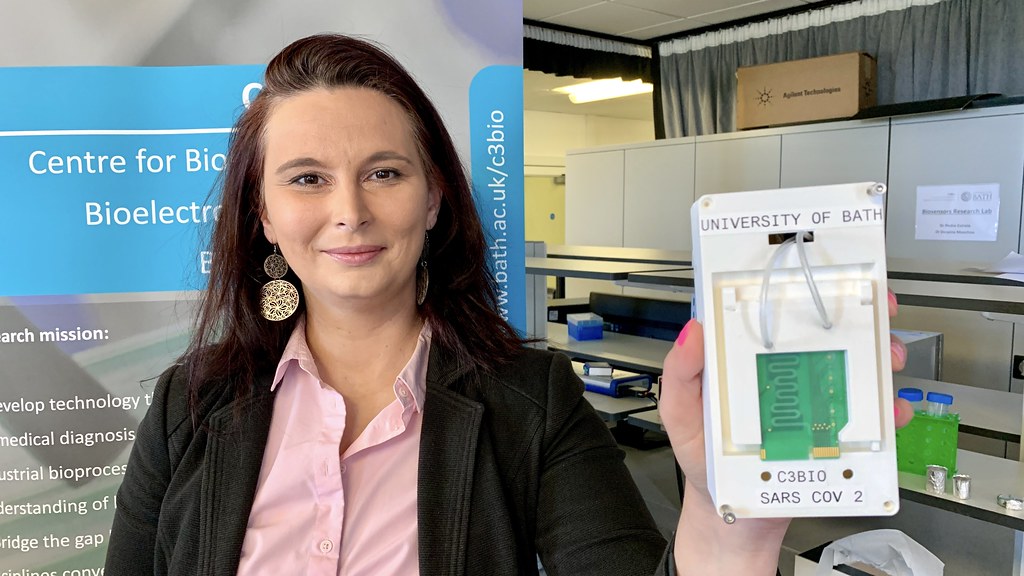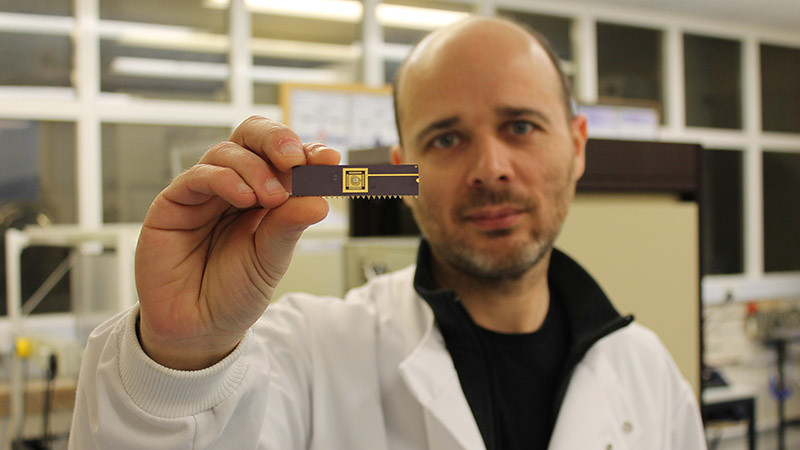Next generation cancer diagnostics
At Bath, we have a critical mass of researchers across the University working on different aspects of biosensor development. These range from transducers and molecular detection techniques to the study of biomarkers and the coupling of bioreceptors with electrodes, sensor surface characterisation and (bio)chemical amplification methods.
Dr Pedro Estrela, Director of the Centre for Biosensors, Bioelectronics and Biodevices has spent the last 21 years researching biosensors to meet the major challenges in the development of biomedical diagnostic tools. A particular focus in the past ten years has been the early detection of prostate cancer.
Prostate cancer is the most common cancer in men and remains the second cause of mortality due to cancer worldwide. One in eight men will be diagnosed with prostate cancer in their lifetime. As the development of the disease is greatly linked to age, having reliable efficient and cost effective detection methods is important in the ageing population of western societies.
Pedro's current research focuses on liquid biopsy, through biosensor integration onto Dr Despina Moschou’s lab-on-chip device technology to detect and monitor treatment effectiveness or tumour progression.1
Miniaturised laboratory on a chip the latest weapon in the fight against disease

Our researchers have shrunk down all the processes needed to analyse a disease normally carried out in a full-scale biochemistry lab to a single chip.
'Lab-on-chip devices will revolutionise the way medical diagnostics are done in the presence of patients. The work we’re doing within C3Bio is at the forefront of exploring existing industrial capabilities such as printed circuit boards to develop low-cost mass-manufacturable lab-on-chip devices for medical applications. ' — Dr Pedro Estrela, Centre for Biosensors, Bioelectronics and Biodevices
With their ability to perform a complete diagnosis of a patient during a consultation, lab-on-chip devices will change our way of practising medicine. Broader teams of specialists will be able to carry out real-time, rapid diagnoses and free up doctors to focus on a patient's treatment and recovery.
The positive impact on chances of survival is a near future reality. Accurate, personalised diagnoses can greatly reduce antibiotic resistance, which is one of the biggest challenges of this decade. The ability to perform diagnosis at low cost will also routinely change the way we see medicine, enabling us to detect illnesses at an earlier stage and treat them as soon as possible. In developing countries, healthcare providers will be able to use lab-on-chip to open diagnostics to a wider population and treat people who really need it without rare and costly medications.


